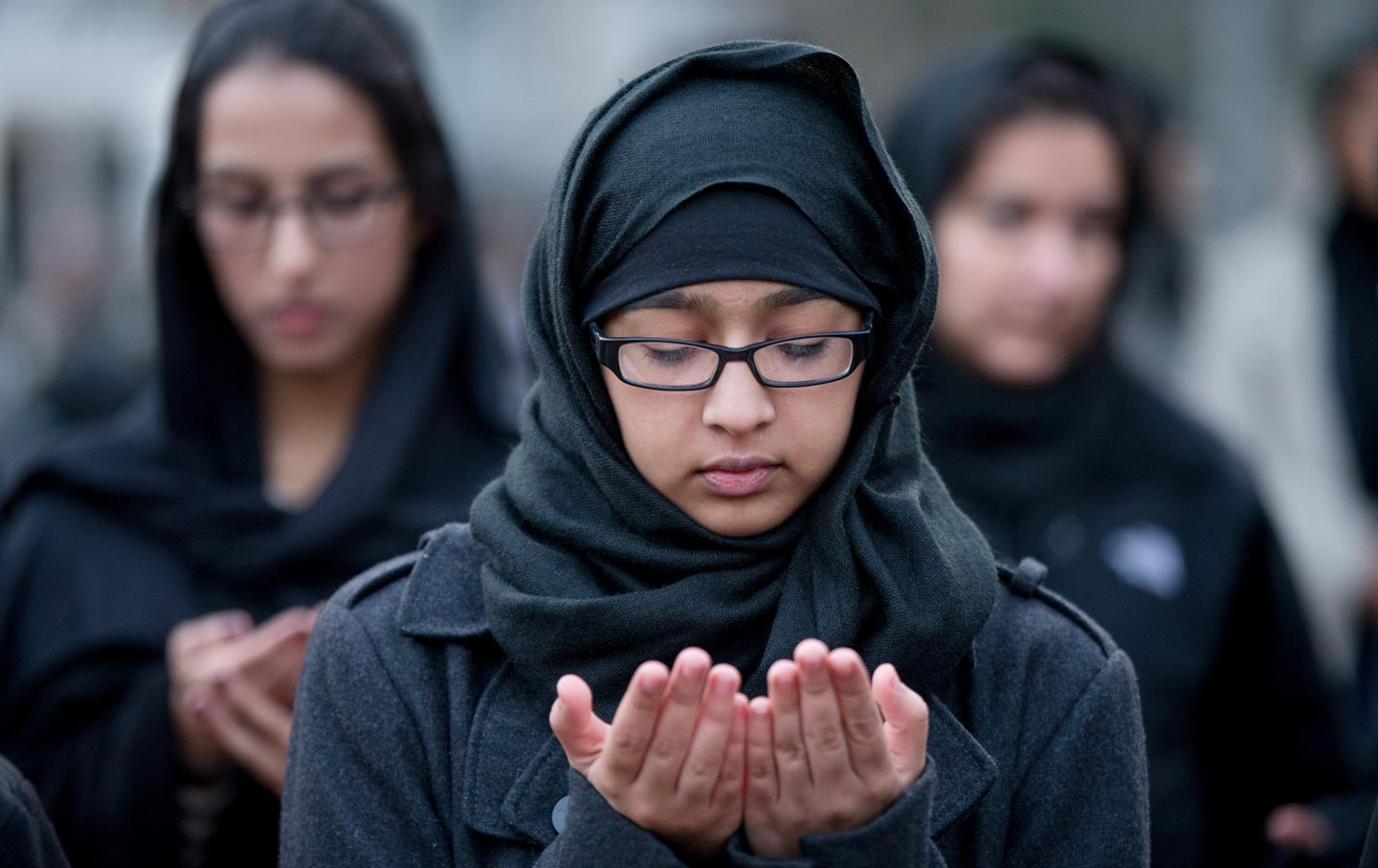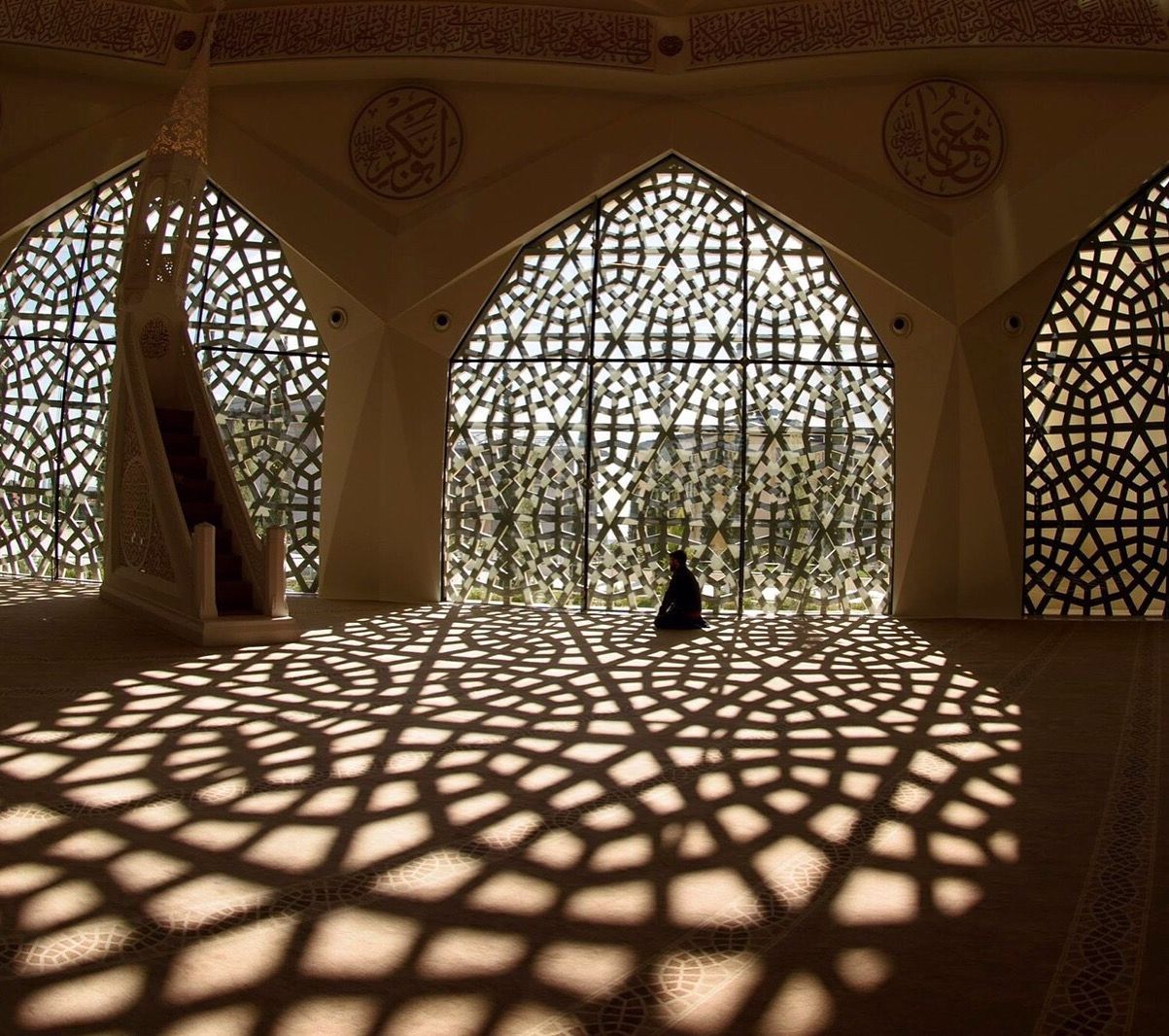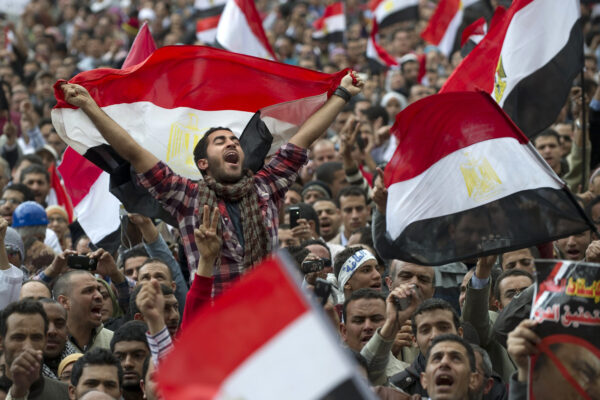Today the two societies, Muslim and Western, are suddenly coming together as one.
Today the two societies, Muslim and Western, are suddenly coming together as one.
After a long slumber of five centuries, Islam has resurfaced on the world stage. After the Spanish Reconquista, and the heyday and then slow decline of the Ottoman Empire during which Islam was Europe’s bogeyman for the masses, Europeans, Westerners, and the rest of the world have suddenly woken up to the fact that during those 500 years, Islam has acquired the spiritual and often political power in countries throughout the world (excluding the Americas) with almost 1.5 billion souls. Decolonisation and the invasive and limitless spread of global Western politics, aspirations, and lifestyles have given many Muslims the awareness of what they often consider their low economic and social status compared with the promises of Western example.
The problems facing the West
The West, convinced of the inherent superiority of its culture, its power, and its God-given role to homogenise the planet following its precepts, has so far largely ignored, underestimated and contemptuously minimised the importance of this awakening. In particular, the United States has deemed it a pointless waste of time in learning about the history, cultures and the mentality of these parts of the world, assuming that the high consumption of Coca-Cola and Hollywood blockbusters was sufficient to accept Western superiority.

But the West has also in the meantime suffered an increasing crisis of confidence. The awareness of overpowering control of multinationals, the unforgiving slavery to money, the continuous lowering of all ethics and principles to the lowest and often the most vulgar common denominator have developed a slow but unmistakable lack of faith and a spiritual void.
The merging of two societies
Today the two societies, Muslim and Western, are suddenly merging. Physically, but not yet culturally; it is urgent that they do so. Wars, famines and the obvious material riches on offer in the West have given the start of a mass migration which has had no equal since the 1940’s war. There shall be no stopping the hundreds of millions of people who are escaping the gaping and perceived glaring disparity between the two worlds. The sooner these two ways of life can find common ground and are able to accept the inevitable compromises that each will have to make, the better.
The two sides appear to be poles apart at the moment. There are of course many areas of common ground: at the higher levels of education and integration which have happened in some countries like the UK and the USA Muslims are already contributing substantially to science, research, politics.
To try to focus on what Islam means and how it can contribute, in a globalized world, to a future multicultural society of global dimensions, it is necessary first to relate to Islam as a religion, since its tenets are intimately tied to its practical way of life and to its potential in connecting with and inspiring a now predominantly lay, unreligious Westernised culture.

In spite of the many millions of Muslims who by now have successfully integrated, socially and professionally in Western society and make a substantial contribution to it, there remains a sometimes invisible detachment between these and western communities especially at the lower levels of education. It is evident that the attitude to life of quietly shunning peoples of other religions, a resistance to entering into dialogue with the Western culture and its manifestations is a product of a pervasive education and environmental influence of Muslims into their religion. If this seal of separation were to be broken, much confusion, uncertainty, and disturbance would follow. But this isolationist attitude today allows almost a billion and a half Muslims to live a life which can be rewarding, tranquil and in many ways enviable. This is ultimately due to the fundamental principle that while we Westerners conduct our lives from an individualistic standpoint, Muslims, firmly united by their faith, are much more prone to consider their life to be governed by the divine principles of God, and are therefore more united by these rules.
These principles, which are the same preached by other religions and in particular Christianity, have been largely superseded in Christianity by the rush to Progress, Liberty, Freedom, and Prosperity. The true Muslims which embody the teachings of Muhammad have an inbuilt sense that these principles are worthless if they are not based on Faith. In fact, Progress, Liberty, Freedom, and Prosperity are not truly achievable and are not only useless but always damaging if they are not based on an overreaching and all-encompassing Faith which gives meaning as well as definitions to these.
This is being abundantly demonstrated today by the crisis and loss of direction of another of those principles: democracy.
The universal principles of Islam
All principles revealed in the Quran are universal principles. The specific examples which evidently relate to the historical period when they were revealed refer to conditions which were true at the time. The faith of all mankind, if it were possible, should be that of believing in Existence, and in Ourselves as part of it, as part of an indivisible and indistinguishable Whole; a statement of faith which can be acceptable to all, believers and non-believers, and of recognising the wonder and the beauty of this fact. Our approach to the text of the Quran should not be one of picking out the local, temporary statements addressed to the people of Arabia in the 7th Century AD but one of admiration at the universally true and positive teachings, or rather the confirmation, as the Quran itself states, of the Universal rules which we must live by. To lead a happy life, to realise one self, and to exist in society and in our World as a whole. It’s all there, for those who will look.
Far be it for a solution to be found without enormous difficulties. Even the Prophet Muhammad was unable to create through his undoubtedly pure, immortal inspiration from Allah a system immune from future strife, wars, divisions, and injustice.
Western society has developed an amazing array of technological achievements. This includes psychology, which itself includes many advances and discoveries in philosophical theories and the explanations to how our mind and our feelings work. But we have not made any progress on the spiritual side of humans, and for this reason, it is incomplete, lop-sided. Islam’s clear, comprehensive understanding of our weaknesses and of our strengths can offer a sophisticated, just, complete answer to these problems.
The fundamental difference with Western ethics is that for most people all their social guidance comes from the lonely individuals, who try to achieve their aims having lost the basic guidance of the spiritual, ethical element; a dimension that has typically eluded the forceful, energetic, aggressive and passionately individualistic people of the so-called North, and is much more suited to peoples whose culture is more restrained and reflective.
The difference between the Quran and other “revealed” books or the teachings of most “holy” people such as Christ or St. Francis or Buddha is that it is focused on the everyday life of normal people living normal lives. It does not expect everyone to become a Buddha. It does not expect people to become saints or to give up their belongings to enter Paradise. It does not threaten: it counsels (if you do wrong you shall be punished – but if you live a healthy, honest and normal life you shall be rewarded, and meantime you are free to enjoy the good things that life can offer you). The submission to God five times a day is not a submission of fear, but a submission to recognising that we are subject to the laws of Allah; to the laws of Nature; the supreme laws of the Universe.

Western civilization, on the other hand, has gradually reduced to lip service or dismissed the rules of God, the rules of the Universe which we defy at our peril, exchanging them by our own rules born of our own successful material as well as intellectual knowledge. This has been said by many writers, scholars, and thinkers in general. But no one has yet outlined any sort of new direction that can get us out of an intellectual impasse following the dead ends that we have reached or are soon arriving to, both as a consequence of our material progress and our intellectual understanding of how the world functions.
Islam has the answers
In reality, the answers are as simple to state as they are difficult to achieve. What must be found is a way of balancing our human achievements with the universal principles and prophetical warnings which have been repeatedly “revealed” over the centuries.
There are now considerable voices which have begun to bring science into the discussion of what the human race is doing to our world, our Gaia planet. A look in perspective from a great distance has shown and sparked much discussion on the relative paucity of our environment and the considerable irrelevance of ourselves as a species. But no connection has yet been discovered between our new and conclusive results and the millenarian warnings of inspired “prophets” which have “known” in the true sense what was hidden at the time in ignorance, and humanity’s blind and greedy capacity to develop control of its environment.
Today in most societies, established, dogmatic religion, although strongly ingrained into people’s psyche, is decoupled from everyday life.
People believe they do not necessarily need a local saint or God to go through their daily lives since the majority does not really believe that these figures can help them in practical earthly problems. What they do is unconsciously using these figures to build up their personal strength and determination to overcome their fears, limitations and insecurities; in one way it is following the saying that the more you say something the more you will believe it – the more you ask God for help the more you will believe that He will help.
Islam instead gives practical, down to earth guidance, which in the end points towards a correct way forwards, benefiting oneself, the others and the world in general. This, perhaps, is what should be the correct definition of the word “religion.”
The Quran is a book of many levels and can be interpreted in many ways. The Quran’s flexibility and universality has allowed it to become the spiritual guide for many different forms of worship. Today it can be read and understood as an “agnostic” interpretation which changes nothing of its universal message and its unchanging indications on how to live a good and just existence.
In order to live in peace with Nature and oneself it is necessary to recognize the needs of nature as a whole; and this can go from a positive approach of respecting local animals (including humans!) and trees and the bees to the destructive carelessness which leads to unbalancing the rest of the universe in some way.
Prioritisation of the communal over the individual is one of the keys to a peace-loving and fair society, and Islam promotes this type of attitude strongly.
Learning. “Read!”, the Quran’s famous intimation to Muhammad by the Angel Gabriel, is the clearest incentive to the need of learning and understanding for any true faith, and learning means, by definition, going outside the “known” and exploring different voices and beliefs for the answers they can give, in space and in time. In these times of crisis of Western ideals, politics, and even the of the economic principles which have been pursued for the last 200 years, the example of Islam can give new direction and certainty to the very positive achievements which have been improving our material lives.
The Quran does not need changing; it simply needs explaining, leaving the revered and undoubtedly unique and extraordinary original untouched. It needs capable, knowledgeable and dedicated people of a very high calibre to transform the examples used in the Quran to explain the Universal principles which it commands us to obey with examples relevant to our fast, confusing and blindly materialistic existence of today. It may lose some of its fascination, lore and poetic genius but it will still teach exactly the same principles of behaviour and ethics of Mohammad’s revelations.
By Brandino R.Machiavelli





